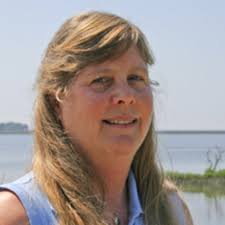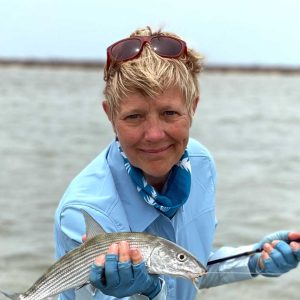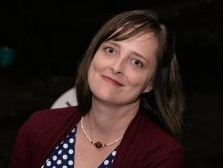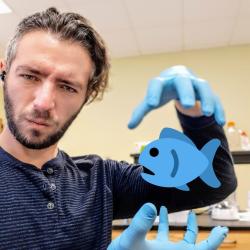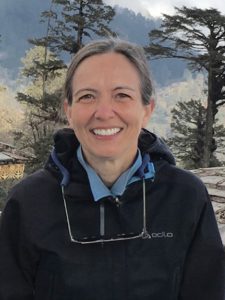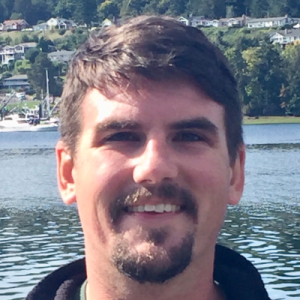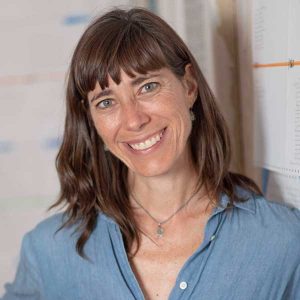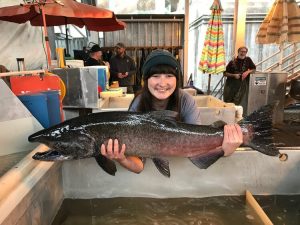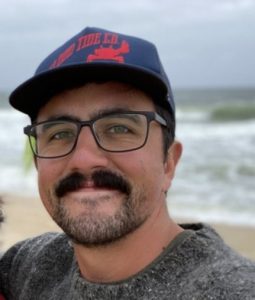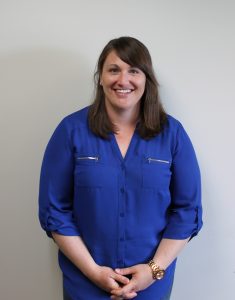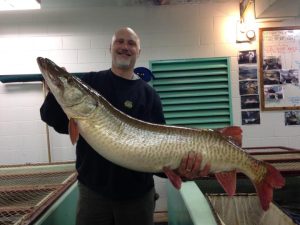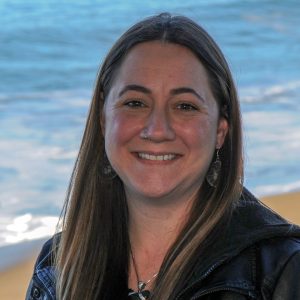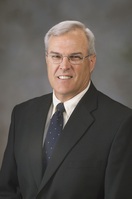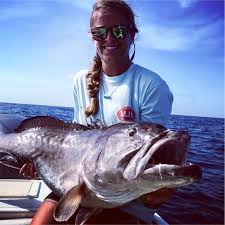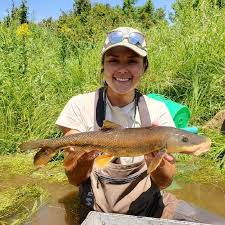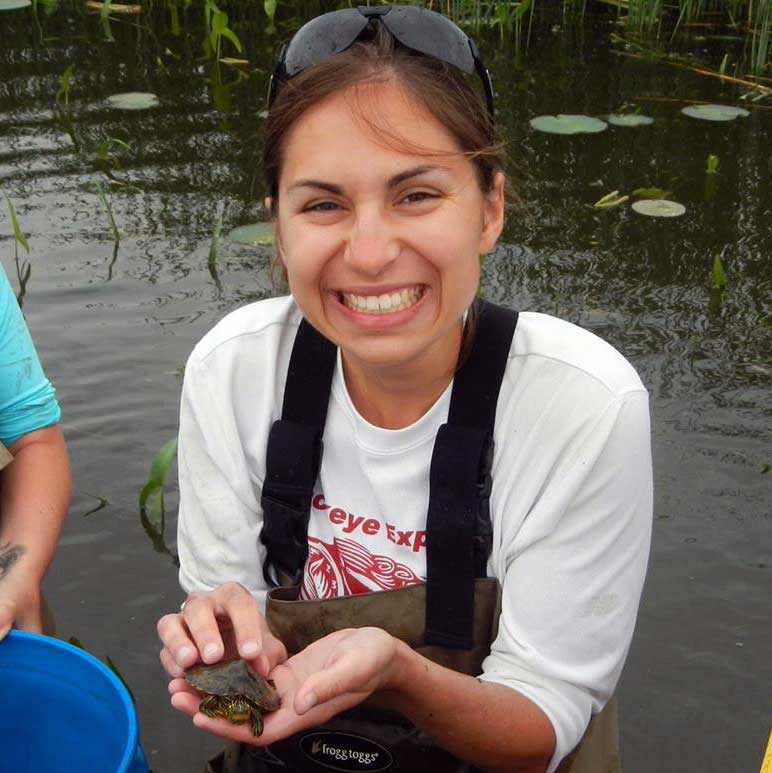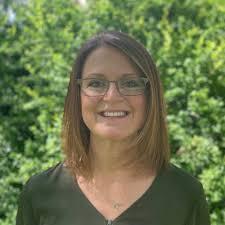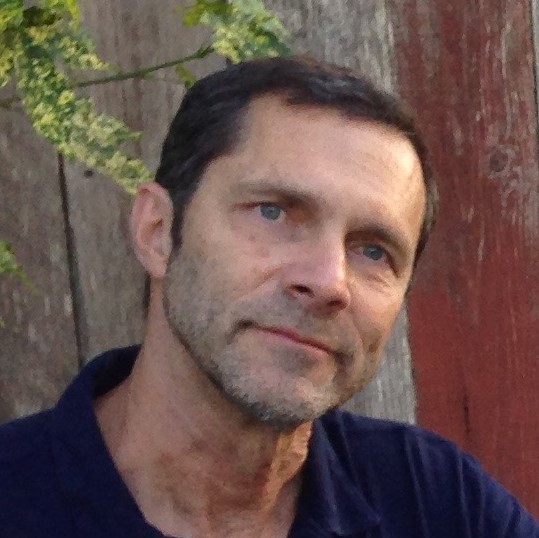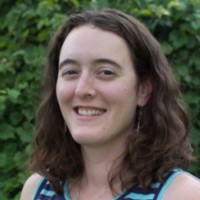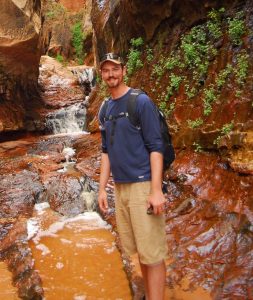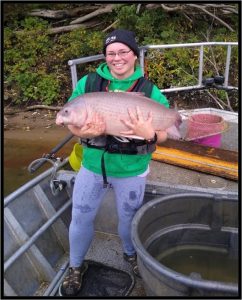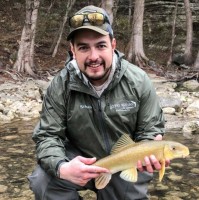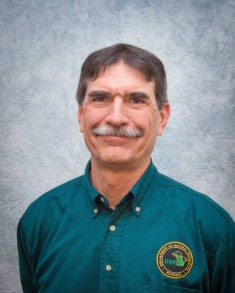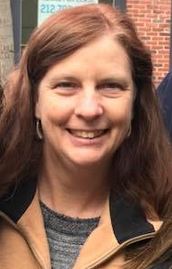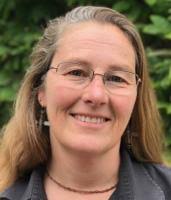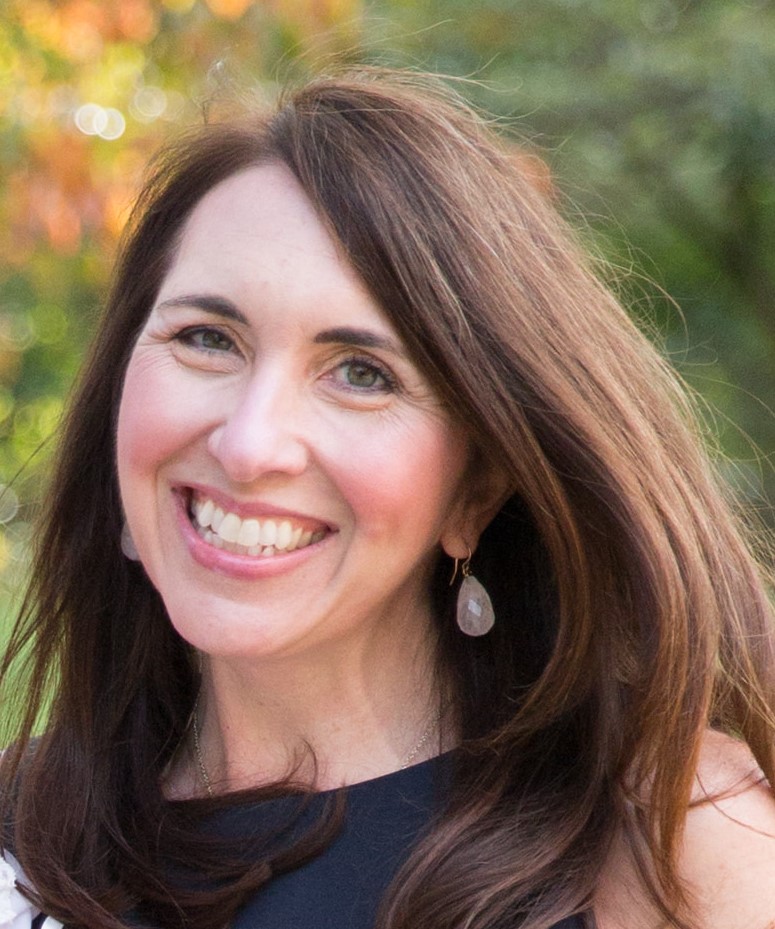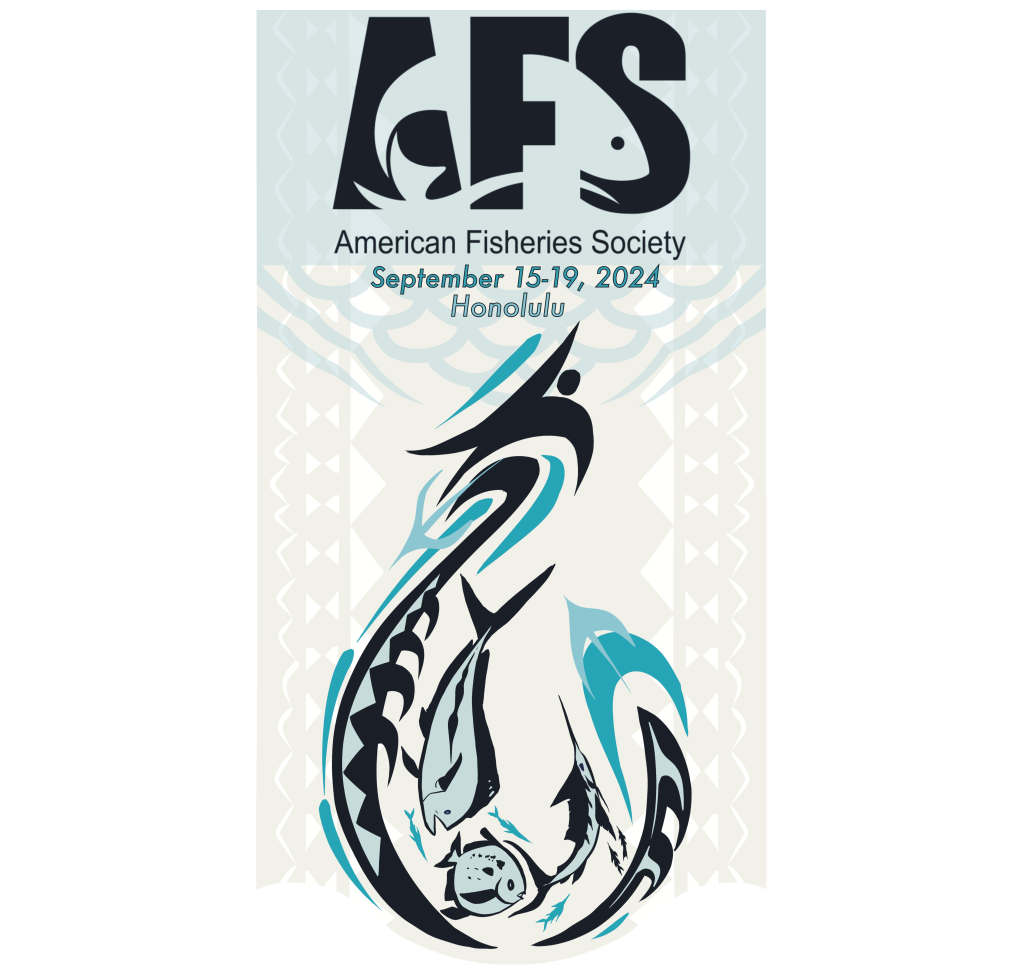Saturday, September 14
Full-day classes
Communicating Research with Effective Data Visualization & Effective Storytelling (Part 1)
Course schedule – 9:00 am -5:00 pm
This two-day series will focus on the process of effectively communicating research findings through data visualization and storytelling using modern practices and considerations. Day one will explore what forms of visualizations are effective for different data, how to provide information without it being overwhelming, and aesthetic considerations for clarity and accessibility. This workshop will combine theoretical discussion with hands-on instruction to apply the concepts to a real fisheries dataset. Basic proficiency with the R programming language is required. Day two will integrate the knowledge from day one and discuss how posters and presentations can be structured to effectively guide the audience through a story about the research, focusing on the aspects of storytelling that make stories different from sterile information. This workshop will combine theoretical discussion with hands-on instruction to apply the concepts to the creation of a slideshow presentation. Basic proficiency with Microsoft PowerPoint is required.
Instructors:
- Pavel Dimens, Cornell University
- Megumi Oshima, NOAA Pacific Islands Fisheries Science Center
Data Wrangling using the Tidyverse in R
Course schedule – 8:00 am -5:00 pm
This course is an introduction to the fundamentals of tidying and wrangling data using R. We will focus on the process of data wrangling beginning with raw data to clean, organize, and summarize the data to answer specific questions. We will use the Tidyverse packages to perform these steps because Tidyverse packages are more intuitive than BaseR functions and can be integrated into visualization packages like ggplot2. We will use fisheries datasets in walkthrough style lectures and examples as well as in independent exercises. The format is meant to introduce participants to different functions and then reinforce knowledge through iterative examples. The workshop uses RMarkdown format which can be used to create reports, but experience with RMarkdown is not required. Experience with R would be beneficial, but extensive experience is not required.
Instructors:
- Shaley Valentine, Illinois Natural History Survey – University of Illinois at Urbana-Champaign
Introductory ArcGIS/QGIS for Fisheries Biologists
Course schedule – 8:00 am -5:00 pm
This course will serve as an introduction to using spatial data in a geographic information system platform. Participants will learn fundamental concepts of using geographic information and gain experience applying those concepts in hands-on exercises to accomplish real world tasks that might be conducted by a fisheries biologist.
Participants will learn how to create maps using best practices; locate and read metadata; use existing datasets; create new datasets by digitizing or incorporating field-collected spatial information; join tabular data to spatial data; use geoprocessing methods to summarize metrics; and carry out other GIS operations useful for fisheries biologists.
Instructors:
- Jodi Whittier, University of Missouri
- Clinton Morgeson, Virginia Department of Wildlife Resources
- Levi Umland, University of Missouri
Introductory Bayesian Inference with JAGS for Fish Biologists
Course schedule – 8:00 am -5:00 pm
Instructors:
- Henry Hershey, US Army Corps of Engineers
- Benjamin Staton, Columbia Inter-Tribal Fish Commission
Plain, Simple, and Concise Writing
Course schedule – 8:00 am -4:00 pm
Learn how to write your manuscript, thesis, dissertation, or any other document using 25% fewer words and without losing any critical content in this highly interactive and hands-on workshop. You will learn how to target your audience and to write in the active voice. You will practice what you learn through numerous exercises and apply the lessons to your writing with personal coaching from the instructor. A highly acclaimed workshop designed especially for natural resource professionals.
Instructors:
- Steve McMullin, McMullin Training and Consulting; AFS Past President
Structured Decision Making for Fisheries Conservation and Management Decisions
Course schedule – 8:00 am -4:00 pm
Fisheries conservation and management requires making decisions that account for multiple values and objectives, as well as uncertainty. Structured decision making (SDM) is a transparent and explicit framework for evaluating decisions that provides practitioners and policy makers with tools to reduce uncertainty, adapt to environmental change, evaluate trade-offs and alternatives, and manage risks. This one-day session will provide participants with a broad overview of SDM concepts and its applicability to fisheries. Upon completion, course participants will be able to: 1) articulate the steps of SDM and recognize the benefits of this process to simplifying and clarifying complex decisions, 2) understand where scientific evidence is most appropriately brought to bear in fisheries decisions, and how to include uncertainty, and 3) develop practical experience and take-home tools to start using SDM. The workshop will incorporate lectures, case studies, and discussions to facilitate interaction among participants and instructors.
Instructors:
- Shane Flinn, Michigan State University
- Kelly Robinson, US Geological Survey/Georgia Cooperative Fish & Wildlife Research Unit
- Michelle Stantial, Four Peaks Environmental Science & Data Solutions
Training on accessing Oceanographic Satellite Data from NOAA CoastWatch and using the Animal Telemetry Network Portal
Course schedule – 8:00 am -5:00 pm
Satellite and animal tracking data can be sources of important environmental observations for oceanographic applications. However, these data are often underutilized, primarily due to difficulties associated with discovering and accessing the data. In this training session participants will be familiarized with oceanographic satellite data products (sea surface temperature, chlorophyll concentration, sea level, ocean winds, and salinity) and satellite telemetry data. Participants will learn how to use the CoastWatch ERDDAP data server, the ATN portal and other web services to find, visualize, subset and download data. Techniques to match up telemetry data to satellite measurement will be provided. The training session will be a mix of lectures, demonstrations and hands-on tutorials in R, Python and ArcGIS.
Instructors:
- Daisy Hui Shi, NOAA OceanWatch/University of Hawaii
- Megan McKinzie, Monterey Bay Aquarium Research Institute
- Dale Robinson, University of California-Santa Cruz
- Cara Wilson, NOAA Southwest Fisheries Science Center
Sunday, September 15
Full day classes
Communicating Research with Effective Data Visualization & Effective Storytelling (Part 2)
Course schedule – 9:00 am -5:00 pm
This two-day series will focus on the process of effectively communicating research findings through data visualization and storytelling using modern practices and considerations. Day one will explore what forms of visualizations are effective for different data, how to provide information without it being overwhelming, and aesthetic considerations for clarity and accessibility. This workshop will combine theoretical discussion with hands-on instruction to apply the concepts to a real fisheries dataset. Basic proficiency with the R programming language is required. Day two will integrate the knowledge from day one and discuss how posters and presentations can be structured to effectively guide the audience through a story about the research, focusing on the aspects of storytelling that make stories different from sterile information. This workshop will combine theoretical discussion with hands-on instruction to apply the concepts to the creation of a slideshow presentation. Basic proficiency with Microsoft PowerPoint is required.
- Pavel Dimens, Cornell University
- Megumi Oshima, NOAA Pacific Islands Fisheries Science Center
From Fish Collection to Data Analysis: A Primer on Monitoring Fish Populations
Course schedule – 9:00 am -5:00 pm
Before evaluating fish populations to monitor recruitment, survival, growth and habitat success, biologists must first learn proper field techniques for capturing and marking fish, recording and entering data, and analyzing and interpreting data. This full-day course equips new biologists and students with the knowledge and tools to develop management questions, select equipment to collect fish from streams, rivers, lakes, and reservoirs, gather relevant data to answer their questions, and use RStudio to analyze data and model population estimates. The morning portion of the course will include instruction about field methods and data collection, and the afternoon portion will focus on concepts and code to construct and apply age-length keys, estimate mortality rates and compare among groups, fit a von Bertalanffy growth function, and fit stock-recruitment functions. Some experience using RStudio is expected; specifically understanding how to download and open RStudio, load data, and using basic coding concepts and statistical analyses.
Instructors:
- Tawni Riepe, Colorado Parks & Wildlife
- Estevan Vigil, Colorado Parks & Wildlife
- Audrey Harris, Idaho Fish & Game
- Kristina Morben, Colorado Parks & Wildlife
Genetics 101 for Fisheries Professionals
Course schedule – 8:00 am -5:00 pm
Genetic data are becoming more widely incorporated into fisheries management, with applications including quantification of adaptive diversity and population resiliency to climate change, genetic identification of samples to species and origin in forensic cases, and genetic monitoring of hatchery stocks through pedigree-based analysis. Though managers and biologists may not collect genetic data firsthand, a baseline understanding of the types of genetic data available, their utility, and how results apply to management plans can prove extremely useful. This workshop is designed for non-geneticists within the field of fisheries and covers 1) introductory genetic basics and terms, 2) best practices for DNA sample collection, 3) laboratory workflow from sample to genetic data, and 4) the types of genetic analyses and results fisheries professionals can expect to encounter. Participants will experience a mix of lectures from experienced geneticists and hands-on activities with workshop material that can be taken home for future reference.
Instructors:
- Katharine Coykendall, Eagle Fish Genetics Laboratory – Idaho Department of Fish and Game
- Audrey Harris, Eagle Fish Genetics Laboratory – Idaho Department of Fish and Game
- Rebekah Horn, Hagerman Genetics Laboratory – Columbia Inter-Tribal Fish Commission
Intermediate Bayesian Inference with JAGS for Fish Biologists
Course schedule – 8:00 am -5:00 pm
This two-day workshop will cover introductory and intermediate topics in applied Bayesian inference and is intended for fisheries biologists and scientists seeking to broaden their analytical knowledge. Instruction will include a mixture of lecture and guided coding tutorials using programs R and JAGS to introduce participants to Bayesian inference and its computational implementation. Lecture topics covered include fundamentals of Bayesian inference, distinctions between Bayesian and classical inference, prior and posterior distributions, basics of Markov Chain Monte Carlo methods, convergence diagnostics, reporting methods, and posterior predictive checking of assumptions. These topics will be explored using example data analyses that range in complexity from basic means comparisons to general(ized) linear (mixed) models, concluding with state-space expressions of Cormack-Jolly-Seber models. A refresher/overview of each model will be provided to ensure participants understand the model prior to seeing its representation in JAGS code. Participants will need a laptop with the correct software installed.
Instructors:
- Henry Hershey, US Army Corps of Engineers
- Benjamin Staton, Columbia Inter-Tribal Fish Commission
Plain, Simple, and Concise Writing
Course schedule – 8:00 am -4:00 pm
Learn how to write your manuscript, thesis, dissertation, or any other document using 25% fewer words and without losing any critical content in this highly interactive and hands-on workshop. You will learn how to target your audience and to write in the active voice. You will practice what you learn through numerous exercises and apply the lessons to your writing with personal coaching from the instructor. A highly acclaimed workshop designed especially for natural resource professionals.
Instructors:
- Steve McMullin, McMullin Training and Consulting; AFS Past President
Science Communication for Fisheries Professionals: Skill-building for More Effective Outreach & Engagement
Course schedule:
Saturday – 6:30 pm – 8:30 pm
Sunday – 8:00 am -4:00 pm
Monday – 7:30 am -9:00 am
Our work as fisheries professionals has critical implications for the future of fisheries and the human communities that rely on aquatic resources, but fisheries professionals are not taught communication skills required to address multiple audiences. This workshop will equip attendees with practical techniques and tools to increase the efficiency and effectiveness of their communication efforts. We focus on three main elements: 1) Audience connection – the importance of finding connections with your audience, including those that can be more challenging, 2) Effective messaging – how to structure and refine your message to make it impactful and relatable, and 3) Better presentations – a breakdown of our standard form of communication to demonstrate how it can more effectively help any audience understand, remember, and believe the science that is being presented. Opportunities to practice skills and apply training throughout the conference will be provided.
Instructors:
- Julie Claussen, Fisheries Conservation Foundation
- Carolyn Hall, Exact Communication
- Katie O’Reilly, University of Notre Dame
- Drue Winters, DBW Strategies
Morning classes
Leading at All Levels of AFS
This workshop is designed for new and emerging leaders in AFS. It addresses the need for new and emerging leaders to better understand how AFS functions, the roles of Unit leaders in AFS, and how to be an effective leader in all volunteer organizations such as AFS.
A final agenda for the 2024 Leading at all Levels session will be developed closer to the event. Past modules for this workshop have included: AFS from A to Z, How to Lead without Authority, and Robert’s Rules of Order.
Instructors:
- Brian Murphy, AFS Past President; Virginia Tech Emeritus
Futurecasting: An AFS-wide Adaptive Planning Framework to Build a Successful Future
The future is uncertain, but future outcomes can be shaped by guiding actions through Futurecasting, which promotes progress towards long-term goals.
Futurecasting helps identify big-picture goals that then guide decisions, prioritizing actions that ensure progress towards big-picture goals, while also allowing adjustment to unpredictable challenges.
Participants will learn how to develop a ‘strategic mindset’ to identify and prioritize actions that promote success. (1) A brief introduction will explain the purpose of Futurecasting and the benefits of long-term, big-picture goals. Participants then will apply Futurecasting in small break-out groups to identify (2) ‘big picture’ goals that align with the AFS mission, (3) resources needed, and (4) actions to help AFS implement these goals. (5) Ideas will be visualized in real-time, and digitally captured for synthesis to share with AFS leadership and members.
Members at any career stage are welcome to attend this session; broad participation ensures diverse perspectives and creative solutions.
Instructors:
- Marlis Douglas, AFS Strategic Planning Committee; University of Arkansas
- Gary Whelan, AFS First Vice President; Michigan Department of Natural Resources Emeritus
- Jeff Kopaska, AFS Strategic Planning Committee; Iowa Department of Natural Resources
Afternoon classes
Interpreting Reproductive Histology: Female Maturity and Reproductive Phases
This is a two part workshop. The first part is a presentation and hands-on learning workshop for reproductive histology and assessing how female reproductive maturity is defined. The second part is a participant image and slide sharing session for getting group input on hard to interpret or interesting gonad histology slides. Fish reproductive experts from across the United States and beyond will be in attendance as part of the Maturity Assessment Reproductive Variability and Life Strategies (MARVLS) group annual meeting. MARVLS’s mission is to advance scientific knowledge and communicate the importance of reproductive biology in the management of marine fish and invertebrates. These sessions foster a shared culture and understanding of reproductive biology through standardized classifications and terminology and improved interpretation of histological slides. You are encouraged to bring a few of your own images for sharing with the group.
Instructors:
- Nancy Brown-Peterson, University of Southern Mississippi
- Hayden Menendez, Fish and Wildlife Research Institute
Continuing Education Course Fees
Member Type | Full Day | Half Day |
|---|---|---|
Student Member | $125 | $65 |
Student Non-Member | $150 | $75 |
Early Career Professional Member | $150 | $75 |
Regular Member | $175 | $90 |
Non-Member | $250 | $150 |
Meet the Instructors!
